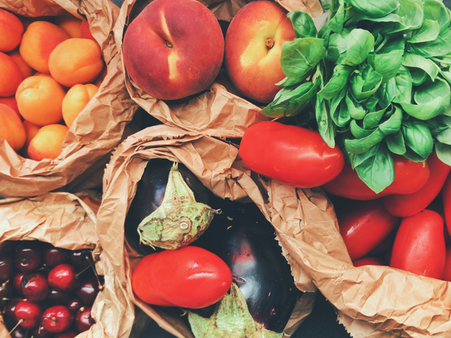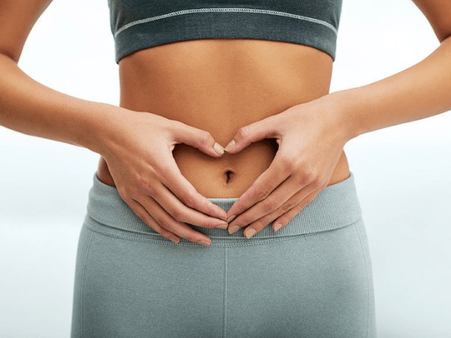Just In
- 4 hrs ago

- 13 hrs ago

- 15 hrs ago

- 16 hrs ago

Don't Miss
- Education
 JEE Main Result 2024 Out, Telangana's 15 Toppers Shine, Check Statewise List of 56 Candidates with Perfect 100
JEE Main Result 2024 Out, Telangana's 15 Toppers Shine, Check Statewise List of 56 Candidates with Perfect 100 - Sports
 Who Won Yesterday's IPL Match 40? DC vs GT, IPL 2024 on April 24: Delhi Capitals Clinch High-Scoring Thriller At Kotla
Who Won Yesterday's IPL Match 40? DC vs GT, IPL 2024 on April 24: Delhi Capitals Clinch High-Scoring Thriller At Kotla - News
 Mangalsutra Row: Did Indira Gandhi Donate Gold During The 1962 War? The Facts Behind Priyanka's Claim
Mangalsutra Row: Did Indira Gandhi Donate Gold During The 1962 War? The Facts Behind Priyanka's Claim - Movies
 Kota Factory 3 OTT Release Date, Platform: When Will Jitendra Kumar's Web Series Premiere On Netflix?
Kota Factory 3 OTT Release Date, Platform: When Will Jitendra Kumar's Web Series Premiere On Netflix? - Travel
 Escape to Kalimpong, Gangtok, and Darjeeling with IRCTC's Tour Package; Check Itinerary
Escape to Kalimpong, Gangtok, and Darjeeling with IRCTC's Tour Package; Check Itinerary - Finance
 DCB Bank Q4 Results: PAT Grew 9% To Rs 156 Cr, NII Jumps 4.5%; Dividend Declared
DCB Bank Q4 Results: PAT Grew 9% To Rs 156 Cr, NII Jumps 4.5%; Dividend Declared - Technology
 OPPO Find X7 Ultra Camera Deep-Dive: Pushing the Boundaries of Photography on a Smartphone
OPPO Find X7 Ultra Camera Deep-Dive: Pushing the Boundaries of Photography on a Smartphone - Automobiles
 Aston Martin Vantage Launched In India At Rs 3.99 Crore
Aston Martin Vantage Launched In India At Rs 3.99 Crore
Your Emotions And Gut-health Are Connected!
Happiness is the highest form of health, said Dalai Lama. And the happy hormones are produced in the gut! Confused? Read on.

Your gut and emotions are a 2-way street. The feel-good hormone "serotonin" is made in the gut and it decides your mood, emotions and anxiety levels.
It is an organ system which takes in food, digests it , absorbs energy and nutrients, and discards the remaining waste. The mouth, esophagus, stomach and intestines are part of the gut or gastrointestinal tract [1].
70 per cent of your immunity starts from the gut. It contributes to your heart health, brain health, improved mood, healthy sleep, and effective digestion, and helps prevent certain cancers and autoimmune diseases [2][3].
The gut is our second brain with about a 100 trillion bacteria that live in our intestines and communicate with the brain all the time. They are collectively known as the microbiome. Most of these bacteria are good for our health.

Why Do You Need A Healthy Gut
- An imbalance of healthy and unhealthy microbes in the gut is sometimes called gut dysbiosis, and it may contribute to weight gain [4].
- The gut serves as a communication centre for the brain, it provides information to the brain, while the brain helps us decide what, when, how much, and how fast to eat and drink [5].
- The brain and gut play key roles in our stress level, and our mood or state of mind [6].
- The gut also produces more than 90 per cent of the body's serotonin, a hormone that helps regulate our mood or emotions [7]. Serotonin works like an antidepressant.

Check For These Signs For An Unhealthy Gut
- Digestion issues: You might be experiencing nausea, gas, bloating, flatulence or the need to visit the loo too often. You might be seeing undigested food in your stools or the urge to visit the washroom after every meal [8].
- Sleep issues: An unhealthy gut might be unable to produce enough serotonin, a hormone responsible for mood and sleep. This may lead to sleep disturbances and hence chronic fatigue [9][10].
- Skin Irritation: When the gut is not at its peak health, one might face skin breakouts, rashes and irritation [11].
- Auto immune conditions: An unhealthy gut lowers our immunity and hence leads to inflammation in the body. Studies state that this could also be a leading cause for the auto immune disorders where our body attacks itself rather than the harmful invaders [12].

Easy Ways To Achieve A Healthy Gut
- Change the diet: Include more of high fibre foods, plant based foods and sufficient water. High fibre foods could be leafy greens, salads with every meal, whole wheat and millets, pulses and legumes [13].
- Include probiotics and prebiotics: Probiotics are food for the good bacteria in the gut and prebiotics are the food for the probiotics. So, include curd at least once every day, khimchi, sauerkraut, fermented vegetables and pickles. Prebiotics are all the high fibre foods, garlic, banana and more [14].
- Following the body's biological clock: Our body clock ensures that all our internal processes run by a timeline like eating, sleeping, temperatures, morning activities and so on. This is called circadian rhythm. When we disrupt this rhythm, all our internal processes suffer. Our gut health depends largely on following the body's rhythm every day [15].
- Manage stress: High and continued levels of stress affects the gut bacteria and leads to digestive issues. Managing stress needs to be high priority [16].
- Take 20 minutes to finish a meal: This ensures proper absorption and assimilation of nutrients, thus enhancing gut health.

On A Final Note…
Be conscious of what you eat and how you treat your digestive system. Follow a healthy diet and involve in physical activities.Afterall, our gut feel needs to be great!

-
 healthIs Office Stress Messing With Your Health? 5 Red Flags You Can't Ignore!
healthIs Office Stress Messing With Your Health? 5 Red Flags You Can't Ignore! -
 healthMental Health: Five Crucial Tips Every Stressed Out Student Should Know!
healthMental Health: Five Crucial Tips Every Stressed Out Student Should Know! -
 healthWorld Heart Day: 5 Habits That Can Improve Heart Health Other Than Exercise And Diet
healthWorld Heart Day: 5 Habits That Can Improve Heart Health Other Than Exercise And Diet -
 healthGain Control of Your Stress and Guard Your Heart!
healthGain Control of Your Stress and Guard Your Heart! -
 healthUnlock the Magical Stress-Busting Power of Indian Spices and Herbs
healthUnlock the Magical Stress-Busting Power of Indian Spices and Herbs -
 healthDid You Know That Chronic Stress Can Affect Menstruation And Vice Versa?
healthDid You Know That Chronic Stress Can Affect Menstruation And Vice Versa? -
 healthScented Wellness: Unraveling Aromatherapy's Powerful Healing Benefits
healthScented Wellness: Unraveling Aromatherapy's Powerful Healing Benefits -
 healthOnam Work-Life Balance: 5 Expert Tips To Enjoy The Festival Stress-Free
healthOnam Work-Life Balance: 5 Expert Tips To Enjoy The Festival Stress-Free -
 healthFrom Mind To Gut: The Surprising Connection Between Stress And Digestion
healthFrom Mind To Gut: The Surprising Connection Between Stress And Digestion -
 beautyHair Loss From Stress? Try These Ayurvedic Remedies
beautyHair Loss From Stress? Try These Ayurvedic Remedies -
 healthPTSD Day: 4 Common Causes Of Post Traumatic Stress Disorder
healthPTSD Day: 4 Common Causes Of Post Traumatic Stress Disorder -
 healthFeeling Anxious And Jittery? Avoid These Foods When You Are Stressed!
healthFeeling Anxious And Jittery? Avoid These Foods When You Are Stressed!


 Click it and Unblock the Notifications
Click it and Unblock the Notifications



